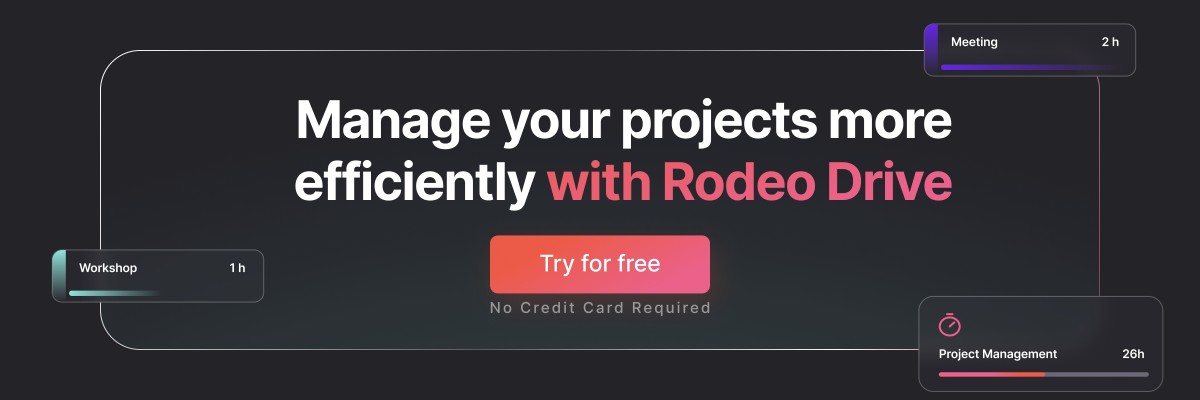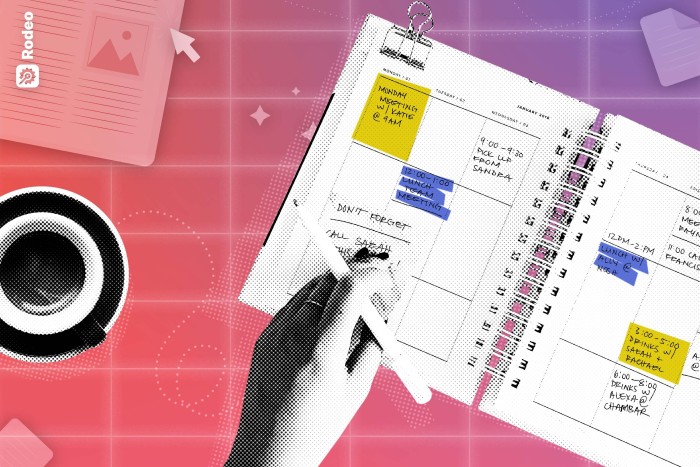7 Tips to Make the Most of Your Working from Abroad Experience
We don’t need to tell you how the nature of work has changed a lot recently. This change is a combination derivated from the pandemic, technology, and automation, as well as an increasing focus on mental health.
Such dynamics plus a surplus of jobs have resulted in employers and employees seeking alternative models of how work is done. You’ve heard the term 'digital nomad' a lot recently, or perhaps the one-off 'workation'.
Remote and hybrid models are everywhere as work abroad opportunities increase, and the traditional 9 to 5 model (including the dreaded commute) has been relegated to the pages of history. But how can you make sure you get the most out of this opportunity?
1. Identify what kind of workation works for you
At first glance, this may seem obvious but more goes into this decision than you may think. Remember, this is a work-ation. So, yes, the relaxation and vacation aspects are paramount, BUT so is productivity. After all, your company is counting on you still. So, ask yourself some honest questions before you go.
Going somewhere new vs. somewhere familiar
Do you want to go somewhere new or somewhere familiar? If you want to go somewhere new, you need to honestly ask yourself if all the things you want to see will distract you too much.
It’s all about finding balance; being able to enjoy your new surroundings without compromising productivity. Give this some thought, and make a plan.
Going somewhere familiar makes it easier to have a routine. Simply because you know what to expect, it’s easier to mesh this with your work schedule. You already know which sights and activities are in your area, and how long it takes to get there, for example.
The intention for the “vacation” part
Is the vacation part of my workation meant for relaxing, partying, sightseeing, or a little bit of all? Remember, nights out don’t end when you go to bed. You may be feeling it for a little while afterward. This will affect your work performance.
Regardless of what activities you will be doing, consider what the right amount of time would be to spend on them. If you want to party, or plan to focus on high-impact activities/sports such as hiking, rock climbing, or surfing, make sure you plan enough time to recover before starting work again.
The length of your stay
How long can you remain focused while away from home? In our experience, the perfect workation is between 7-14 days. This allows time for both serious work and time to explore and unwind. Most long-term rental scenarios offer weekly discounts too!
If you decide to go for 4 weeks or longer, being able to stick to a steady routine becomes even more important.

2. Book the right accommodation
Like being honest with yourself on the kind of workation you’re looking for, the same goes for accommodation. With the proliferation of a short-stay rental market and companies like Airbnb, the options are aplenty.
Think about it! There are hotels, cabins, b&bs, campgrounds, traditional homes, treehouses, and seaside cabins—and each comes with its own functionality and focus.
Traditional hotel rooms and campgrounds tend not to be ideal for productivity. These places can get very noisy. You also must research how accommodating their digital infrastructure is toward remote professionals. All Wi-Fi connections are not created equal, for example.
Houses, condos, and (some) cabins are what we find to be ideal, although efficient hotel suites can work too. You will have all the amenities you need for both work and relaxation. Having a kitchen will also be a lifesaver—for both personal finance and convenience.
Renting a house provides an atmosphere that is both familiar and comfortable. The homey atmosphere allows for more focus on work, resulting in higher productivity. If you’re traveling with non-working companions, it also provides separation between them and your work.
3. Pack all your office essentials
This one may seem like a no-brainer, but it does need effort. Of course, you need to pack your clothes, leisure items, and travel-compliant toiletries, but you can’t forget all your work items.
Do you need specialized items? What about office supplies like post-its, notebooks, paperclips, etc.? Aside from your computer, do you need to bring any digital add-ons? (Think wireless printers, digital pens, drawing pads, etc.).
Look around your home office and identify what you use daily. If you seem to have more “essentials” than you initially thought, you might not want to be packing that much.
Instead of schlepping your whole office with you, research where you can buy/rent the things you need once you arrive at your destination. There might be a place where you can rent an extra monitor and other hardware, and most definitely a place to purchase office supplies.
Also, make sure you bring any item that brings you comfort or Zen in those rough professional times. At home or away, those moments will still happen, and you need to prepare for them.
We know you are busy, and sometimes it’s hard to do everything in an ideal timeframe. But try, and not wait until the last minute to pack for your workation. Trust us. In your haste, you are at a much higher risk of forgetting something important. Give yourself ample time to pack and see if you have missed anything. Oh, one more thing, and it’s only one word: CHARGERS. Enough said.
4. Coordinate work arrangements
Proper internal communication and coordination are vital for productivity. If you are not on the same page with your colleagues, things can get very messy, very fast. When you are away from the office, you do not have the luxury of face-to-face (i.e., immediate) interaction.
Coordinate communication channels
Establish which communication channels you will use to stay in touch with your team throughout projects. Especially with members located in different countries or even time zones, having one agreed-upon point of truth—such as an all-in-one project management tool—is imperative.
Coordinate with colleagues
Delegate as many tasks ahead of time as you can and establish a clear timeline for completion. If you do, everyone on your team will know what they need to do and when even if you are not in direct contact.
Coordinate with clients/customers
Remember that colleagues may not be the only ones you should communicate and coordinate with. If applicable to you and your business, you also need to coordinate with your customers!
In some ways, this may be the most critical thing to consider while away. If your customers don’t know what to expect from you, they may not be customers for much longer.
Establish your working hours
You may also be in a completely different time zone. Work with your colleagues and managers to establish your working hours. This will allow everyone to know when to expect you to be accessible and when not to, regardless of the time zone.
If possible, it might be a good idea to propose earlier working hours. Working from 7 to 3 instead of the typical 9 to 5 gives you more time to enjoy daily activities at your destination.
5. Remember to Have Fun
It’s easier said than done, we know. Our modern brains are hard-wired toward productivity, for better or worse. This makes it much more difficult to turn off or hybridize than we can expect. Using a time tracker to register your hours will help you gain insight into how many hours you are actually putting in.
The entire idea of your workation is to be both productive and have a nice time. How you define that nice time is up to you but remember to have it. If you are just going to be working over hours because of getting unnecessarily caught up, what is the point of traveling somewhere else for that?
Once you finish your daily commitments, focus on yourself and your mental and physical well-being. Do not skimp on pleasure while away!
Take some time each day and TURN YOUR DEVICES OFF—no phones, no watches, no tablets, no nothing. Disconnect and enjoy the silence! You returning refreshed is in everyone’s best interest. And today's rapid-fire communication is not conducive to this goal. Remember that sometimes it’s ok to just not respond.

6. Do research in advance
You will be able to close your laptop straight after work if you do all the research about your destination in advance. Imagine sitting in front of a screen for 8 hours on end, and then having to spend another 1-2 hours looking for activities or restaurants and planning how to get there.
Do as much research as possible before arriving at your destination. Which areas or neighborhoods do you want to explore? Where are the fun activities and popular sights? Which modes of transportation are available? Knowing this all in advance makes things smoother, while still allowing you to be spontaneous.
For example, list the restaurants you are interested in and find out where they are exactly located and how to get there. Once you get hungry, you can quickly decide where to go depending on your mood and other plans that evening.
Another advantage of doing ample research in a timely manner is that it helps you decide (or change your mind) about a certain destination, and where your accommodation would ideally be located.
7. Co-locate with friends/colleagues
This tip comes straight from the team at Rodeo, which is able to benefit from a very flexible workation policy. You might have friends, family members, or colleagues around you who are interested in working abroad for a while too. So why not plan something together?
If you can agree upon a destination, it can be fun to shack up by sharing accommodation. Besides, you will be saving money in the process. With a group, you might be able to afford a much more exciting type of accommodation, such as a luxurious beach house or pool villa for example.
You could set up a designated co-working space in your place. With workation buddies that share the same goal in finding a good work/vacation balance, establishing a routine becomes effortless.
It all becomes even more fun if you can find buddies with similar leisure interests too. Imagine loading up the van with your surfboards to go catch some waves together after work every day. Or take turns picking out a different hiking route in the natural surroundings you find yourself in.
Takeaway
As alternative work models increase in popularity, employers and employees worldwide continue to experiment with different forms. Whether hybrid or remote, this new era of work is still in its infancy. Not everyone may be savvy about how to work from abroad for success yet.
The workation is a nice middle ground between in-office, at-home, and remote. It allows for productivity AND relaxation within an accessible timeframe for all. But remember, a workation is not a vacation, and there are some things to consider before heading off. If you follow these tips, then your work from abroad experience will be everything you hoped for, and more.
Are you looking to optimize your (remote) workflows? Find out how Rodeo can help by scheduling a free demo with one of our experts or starting a free trial today!







